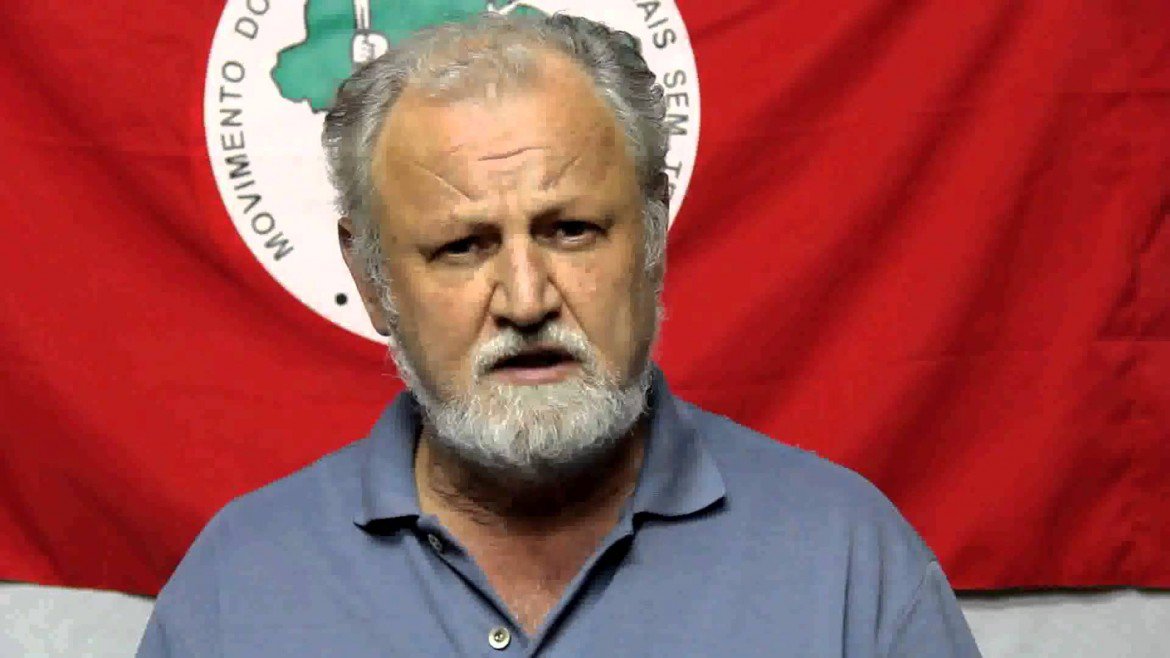Interview
João Pedro Stedile: ‘It’s time to mobilize’
The leader of the Landless Rural Workers’ Movement is calling for an international movement against neoliberal forces influencing Latin America.

With President Dilma Rousseff suspended and impeached, il manifesto spoke with João Pedro Stedile, a Brazilian economist and leader of the Landless Rural Workers’ Movement (MST), about the future of the country’s lower and emerging middle class.
Now that Rousseff has been suspended, what can happen now?
It’s time to mobilize against the coup. A coup without tanks in the streets, but equally unsettling: similar to the one against Fernando Lugo in Paraguay in 2012. Then also it was Vice President [Federico] Franco who instigated the impeachment for no reason. There is nothing legal in what happened, because the president has not committed any crime and was ousted from power illegally. The popular organizations have made it clear. The working class has made it clear. The intellectuals, the artists, the basic liberal church has made it clear.
For the MST, for the movements gathered in the Frente Brasil Popular, the Temer-Cunha government has no legitimacy because it was born out of corruption and a return to neoliberalism. We brought to Senate President Renan Calheiros and President of the Supreme Federal Tribunal Ricardo Lewandowski the equivalent of three volumes of signatures against this impeachment process. In the meantime, we need to employ every available energy because we expect a period of many struggles and crises at all levels: political, social, environmental.
The Temer government seems like a photocopy of Macri’s in Argentina: entrepreneurs, bankers.
The Temer government and his party, the PMDB, is that of the elite. The ruling classes have decided to take back their privileges. Temer is truly the Brazilian equivalent of Macri: a fop who wants to end his political career as president. But his masters are in Washington, from there pulling the strings of the bourgeois faction that represents them. In the Temer government you’ll find the conservative stronghold, financial capital and a vast span of vindictive forces determined to subdue the interests of the state with those of the market.
You sent a letter to Pope Francis through the lawyer Marcelo Lavenere Machado, who led the impeachment of de Mello in 1992. Why? What can the Pope do?
The words of Pope Francis, in the interview during which he listened to the message of the popular movements and lawyer Marcelo Lavenere, former National President of the Association of the Brazilian Bar Association and member of Pax Justiça Commission and the Conference Brazilian Bishops, were important messages. Lavenere explained well why the impeachment against Dilma has no legal and constitutional basis. The prosecution attributed to the president two unsubstantiated administrative offenses, and that it does not justify a “crime of responsibility.” Finally, the arguments of the allegations are administrative acts of government to collective participation and not criminal acts attributable to the president.
It is clear that the opposition political parties, strengthened by a powerful media campaign in their favor, have decided to exploit the government’s low popularity indices to get rid of Dilma with an ethics pretext — decidedly out of place, considering the profile of those who have promoted the impeachment.
Everyone has their reference points. We prefer to fight for home, land and labor, which are the objectives shared by the pope during his two world meetings with popular movements. And they were, even with all its limitations and despite the mistake to ally with the powers that be, the objectives of the Dilma government. The reference points of the parties that have promoted the impeachment are the elite and the financial powers that back them. The middle classes raising the flag of corruption and have as a symbol Judge Sergio Moro.
The problem in Brazil is that we are still one of the most unequal and unjust societies. In this context, in the context of the general crisis — economic, political, environmental — we are going through, corruption is inherent to the operation of a voracious middle class that appropriates public resources to derive maximum profit, for themselves and for their own businesses. Corruption is a symptom of a systemic crisis, not the cause. It’s not enough to resolve one process; we need a constituent assembly that will end all the corruptions of our politics.
Members of the right-wing groups traveled to Washington before the last round of voting.
The Temer government will ensure that the U.S. checks our economy through its businesses. It has already happened with Chevron pressuring through Senator José Serra, of the Brazilian Social Democracy Party, to privatize deep-water resources. Brazil is part of the BRICS, and another of the goals is to turn its back to South-South alliances. The intention is to encircle Venezuela with the same systems, to put an end to Bolivarian Socialism. The design against the gains made in Latin America is widespread. Our resistance must also be widespread.
Originally published at http://ilmanifesto.info/joao-pedro-stedile-mobilitazione-permanente/ on 2016-05-13
